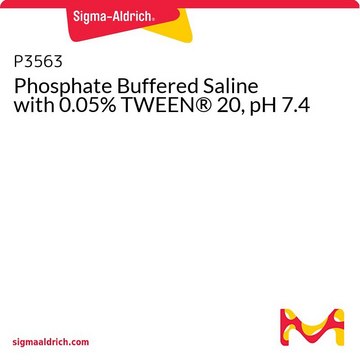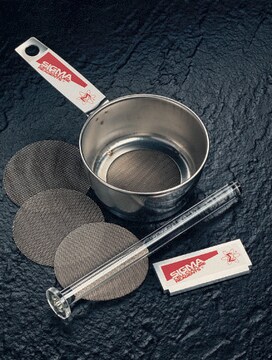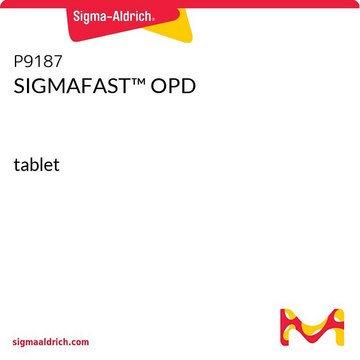A8327
Bovine Serum Albumin solution
30%±2% in 0.85% sodium chloride, aseptically filled
Synonym(s):
Albumin solution from bovine serum, BSA solution
Sign Into View Organizational & Contract Pricing
All Photos(2)
About This Item
Recommended Products
biological source
bovine
Quality Level
sterility
aseptically filled
assay
28-32% protein basis (biuret)
form
solution
purified by
heat shock fractionation
does not contain
stabilizer or preservative
origin
USA origin
concentration
28-32% protein (biuret)
30%±2% in 0.85% sodium chloride
technique(s)
ELISA: suitable
UniProt accession no.
storage temp.
2-8°C
Gene Information
bovine ... ALB(280717)
Looking for similar products? Visit Product Comparison Guide
General description
Serum Albumin is a protein widely present in the circulating blood. Albumin has a helical structure with three domains that form a heart-like shape. It belongs to the four-member albumin superfamily.
Application
Bovine Serum Albumin solution has been used:
- as one of the experimental components to resemble the plasma-protein-rich acute respiratory distress syndrome (ARDS) edema liquid
- to prepare embryos for fluorescent staining of the actin cytoskeleton
- in tissue culture and neurite outgrowth assay
Biochem/physiol Actions
Serum Albumin regulates the osmotic pressure and pH of the blood. It transports various endogenous and exogenous compounds such as amino acids, drugs, steroids, and fatty acids. Bovine serum albumin (BSA) serves as a molecular weight standard, standard in vaccine preparation, and enzyme-linked immunosorbent assay (ELISA).
Storage Class
10 - Combustible liquids
wgk_germany
WGK 3
flash_point_f
Not applicable
flash_point_c
Not applicable
ppe
Eyeshields, Gloves
Choose from one of the most recent versions:
Already Own This Product?
Find documentation for the products that you have recently purchased in the Document Library.
Customers Also Viewed
Ching-Lin Hsieh et al.
Cell reports, 37(5), 109929-109929 (2021-10-29)
Current coronavirus (CoV) vaccines primarily target immunodominant epitopes in the S1 subunit, which are poorly conserved and susceptible to escape mutations, thus threatening vaccine efficacy. Here, we use structure-guided protein engineering to remove the S1 subunit from the Middle East
Umma Habiba et al.
Oncology letters, 13(1), 321-328 (2017-01-27)
Oral leukoplakia (OL) is a clinically diagnosed preneoplastic lesion of the oral cavity with an increased oral cancer risk. However, the risk of malignant transformation is still difficult to assess. The objective of the present study was to examine the
André G Costa-Martins et al.
Cell reports. Medicine, 2(12), 100465-100465 (2022-01-15)
In children lacking influenza-specific adaptive immunity, upper respiratory tract innate immune responses may influence viral replication and disease outcome. We use trivalent live attenuated influenza vaccine (LAIV) as a surrogate challenge model in children aged 24-59 months to identify pre-infection mucosal
Kushal Suryamohan et al.
Communications biology, 4(1), 475-475 (2021-04-14)
COVID-19 is a respiratory illness caused by a novel coronavirus called SARS-CoV-2. The viral spike (S) protein engages the human angiotensin-converting enzyme 2 (ACE2) receptor to invade host cells with ~10-15-fold higher affinity compared to SARS-CoV S-protein, making it highly
M Gordon Joyce et al.
Cell reports, 37(12), 110143-110143 (2021-12-18)
The need for severe acute respiratory syndrome coronavirus 2 (SARS-CoV-2) next-generation vaccines has been highlighted by the rise of variants of concern (VoCs) and the long-term threat of emerging coronaviruses. Here, we design and characterize four categories of engineered nanoparticle
Our team of scientists has experience in all areas of research including Life Science, Material Science, Chemical Synthesis, Chromatography, Analytical and many others.
Contact Technical Service






